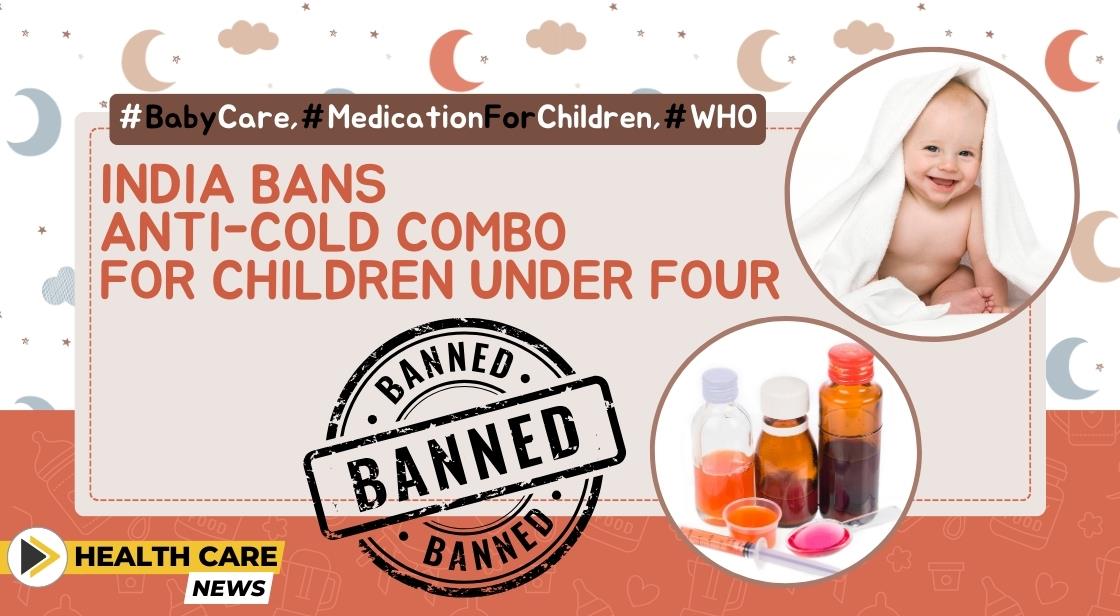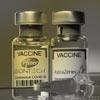Ban on Anti-Cold Drug Combination for Children Under Four by Indian Drug Regulator

News Synopsis
The Central Drugs Standard Control Organisation (CDSCO) in India has recently enforced a prohibition on the usage of a particular anti-cold drug combination for children below the age of four. This regulatory action follows global concerns surrounding the association of this drug combination with fatalities among young children.
Ban on Anti-Cold Drug Combination
The CDSCO directive mandates that medications containing the combination of chlorpheniramine maleate and phenylephrine, commonly used to alleviate symptoms of the common cold, are not to be administered to children under four years old.
The agency has instructed manufacturers to label these drugs accordingly, emphasizing the restriction for this age group.
Global Concerns and Regulatory Discussion
The decision to ban this drug combination emerged in response to alarming reports of child deaths connected to cough syrups globally. At least 141 children's deaths worldwide have been linked to similar toxic formulations, prompting a closer examination of the safety and appropriateness of these drugs for young children.
Regulatory Deliberations and Recommendations
In the wake of these concerns, discussions ensued within the Subject Expert Committee (SEC- Pulmonary) during a meeting held in June. The committee's recommendation to abstain from using this particular drug combination for children under four years old prompted the regulatory action by the Central Drugs Standard Control Organisation (CDSCO).
Global Impact and Safety Measures
Reports of child fatalities associated with domestically manufactured cough syrups in India have raised significant alarm. In 2019 alone, 12 deaths were reported in India, with an additional four cases resulting in severe disabilities, underscoring the urgent need for stringent safety measures and regulatory interventions.
Drug Labeling and Regulatory Directives
The recent directive from the drug regulator necessitates manufacturers to prominently label their products with a warning against the use of the fixed-drug combination in children under four years old. This measure aims to curb potential risks associated with administering these medications to young children.
WHO Recommendations and Health Guidelines
Coinciding with these developments, the World Health Organization (WHO) has urged nations to take proactive steps in preventing, detecting, and responding to incidents involving substandard and falsified medical products. Furthermore, WHO guidelines advise against the use of over-the-counter cough syrups or medicines for treating coughs and cold symptoms in children below five years of age.
Some relevant and latest facts about the cough syrup ban in India:
1. Update on Child Death Toll: While the original news mentions 141 child deaths globally, the latest WHO report published on November 9, 2023, states that at least 263 children have died in Gambia, Indonesia, and Uzbekistan linked to contaminated cough syrups.
2. Specifics of the Banned Combination: Clarify that the banned combination specifically targets chlorpheniramine maleate and phenylephrine in fixed-dose combinations. These are commonly used as antihistamines and decongestants in cough syrups and cold medications.
3. Timeline of Events: Highlight the ongoing nature of the issue. Mention that the CDSCO's decision comes after the WHO issued its call to action in April 2023, not "earlier this year."
4. Indian Investigation Findings: Briefly mention that the Indian government investigation revealed quality control deficiencies and manufacturing issues in some cough syrup production facilities, contributing to the tragedies.
5. Additional Measures by India: Expand on the government's other actions besides the ban. These include increased inspections of drug manufacturers, stricter quality control regulations, and raising awareness among healthcare professionals and parents about safe medication practices.
6. Global Initiatives: Mention ongoing global efforts to address the problem, such as the WHO's investigation into the contaminated cough syrup sources and its collaboration with Interpol to tackle the illegal trade of substandard and falsified medical products.
By incorporating these updated facts, you can provide a more comprehensive and relevant picture of the current situation regarding cough syrup safety and the measures being taken to protect children around the world.
You May Like









